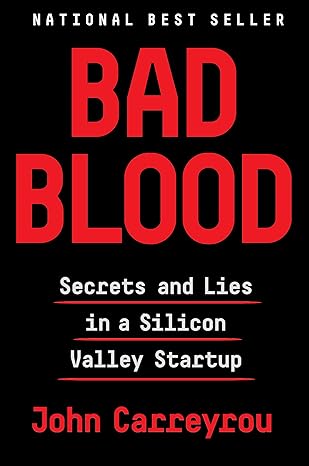Bad Blood: Lessons in Ethics and Accountability for Research Administrators
John Carreyrou's gripping narrative, "Bad Blood: Secrets and Lies in a Silicon Valley Startup," unfolds the meteoric rise and scandalous fall of the biotech company Theranos and its enigmatic founder, Elizabeth Holmes. For research administrators, this exposé is more than a cautionary tale; it is a vivid case study loaded with insights into the importance of integrity and oversight in research.

Unveiling the Theranos Saga
Theranos promised to revolutionize blood testing by using only a few drops of blood. However, the technology never worked as advertised—a fact hidden through an elaborate web of deceit. The accounts of whistleblower courage, and perturbing levels of fraud at Theranos, are central to the story, offering important lessons for research and oversight.
Implications for Research Integrity
The first take-home message is the utmost importance of data integrity. Exaggerated results and manipulated research not only undermine the scientific method but can also lead to potentially harmful consequences for users. Research administrators are in a pivotal position to foster a culture where data accuracy is non-negotiable and where open discussions about research methodologies are the norms.
The Role of Oversight
"Bad Blood" also spotlights the insufficient oversight that allowed Theranos' subterfuge to go unchecked for years. Research administrators should take this as a reminder of their role in upholding rigorous standards of evaluation. Effective oversight mechanisms are not mere bureaucratic hurdles; they are essential guards against misconduct.
Ethics and Responsibility
The book painfully details how patient wellbeing was compromised by unvalidated and unreliable tests. It calls upon research administrators to champion ethical standards in all aspects of research. Beyond compliance with laws and regulations, there's an inherent moral duty to ensure that research outcomes do not intentionally cause harm and that participant welfare is paramount.
Encouraging Transparency and Accountability
One of the stark lessons is the need for transparency. Holmes' secretive approach avoided scrutiny and bred a culture of fear and intimidation. Institutions must encourage transparent processes and open channels for reporting concerns without fear of retribution, fostering an environment where accountability is the norm.
Understanding the Human Impact
Holmes's pursuit of fame and funding overlooked the human element—the patients. Research administrators should be consistently reminded that behind every sample is a person whose life and wellbeing could be affected by their decisions.

Why Read "Bad Blood"?
For research administrators, reading "Bad Blood" is not about indulging in the sensational fall of a once-lauded company. Instead, it's about absorbing the broader lessons it offers about the complexities of managing cutting-edge research projects. It forces a reflection on the values that should guide research—not just profit or prestige, but also integrity, honesty, and human compassion.
"Bad Blood" is mandatory reading for research administrators as it provides a stark, real-world example of what can go awry when ambition overrides ethical considerations. It's a reminder that the integrity of the research process is key to producing not just successful, but also ethical and meaningful innovations. As administrators, it's a call to lead with vigilance and a commitment to the truth, ensuring that the pursuit of scientific advancement never comes at the cost of core ethical principles.
Bad Blood: Secrets and Lies in a Silicon Valley Startup by John Carreyrou is available via booksellers near you. It is also available in e-book and audiobook format.
Spoiler alert: The book was written prior to the trial. Elizabeth Holmes was recently sentenced to an 11-year term. The full story at NPR.